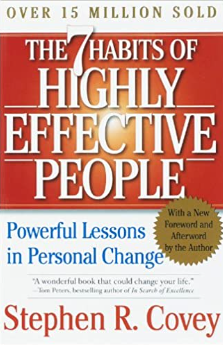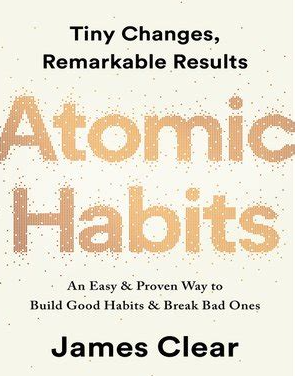There are many self-help books that promise to change your life and alter your mindset. But a book is just a book; if you don't read it, it'll just sit there. And even after reading and learning the contents, the power to change your life is all internal. I trend I noticed for these books is the importance of habit and repetition. A drastic change for only a week will have little effect, while a consistent habit over years would bring mastery.
I think most people (including myself) don't have the time or effort to read through all these books. Most books can summarize their principles into a concise list of rules, but are dragged out into long essays and anecdotal stories. Thankfully, many videos and summaries have been created to illustrate the books with useful visuals. For my own understanding, I'll also provide my interpretation of these principles.
- 12 Rules for Life (Jordan Peterson, 2018): This book is about adjusting your mindset towards fulfillment. Jordan Peterson is a verbose man who had become an important father-figure for wayward male youths. A common theme from his rules is managing of chaos within our desired order, as well as the existential struggle of all living beings.
- Stand up straight with your shoulders back: Stand tall and accept the responsibility of life. Literally having a good posture supposedly affects you physiologically to boost your serotonin. This projects confidence to others, which reinforces your own mental confidence.
- Treat yourself like you are someone you are responsible for helping: Don't be overcritical of your own insecurities or mistakes. Try to position yourself in the best opportunities.
- Make friends with people who want the best for you: Remove any negative people from your life; surround yourself with good influences towards your goals.
- Compare yourself to who you were yesterday, not to who someone else is today: Another way of saying: "You can't always be the best, but you can always do your best"
- Do not let your children do anything that makes you dislike them: I'd say not just children, but any family member, friend, or even pet. This rule for being a good influence around those within your circle of influence.
- Set your house in perfect order before you criticize the world: Stop doing what you know to be wrong. Take responsibility for your own actions, before taking on other's
- Pursue what is meaningful (not what is expedient): Your actions should be leading you towards your life goals, as impossible as they may seem. You should always challenge yourself to accomplish more.
- Tell the truth -or, at least, don't lie: Lies attempt to bend reality into our ideals, which creates more chaos. Accept the truth of reality, and act towards changing reality into your dreams.
- Assume that the person you are listening to might now something you don't: Others are often excited to tell you everything they're thinking. Appreciate the opportunity to gain new knowledge from other's lived experiences to address your own ignorance.
- Be precise in your speech: Building from rule #8, keep your mind set on focused goals
- Do not bother children when they are skateboarding: Similar to #5, allow others to practice in dangerous activities to become more resilient. He goes on about gender differences, but I don't think it's as beneficial.
- Pet a Cat When You Encounter One on the Street: Enjoy the good things in life (like cats)
- 7 Habits of Highly Effective People (Stephen R. Covey, 1989): This describes how to be impactful in social and business interactions. These habits are all well and good, but it doesn't explain how to effectively implement them in your lifestyle
- Independence: The mastery of self
- Be Proactive: Take responsibility for your actions to further your goals
- Begin with the end in mind: And it should be a clearly, defined goal. All decisions should be made to progress towards that goal
- Put first things first: Have the discipline to do what's important and urgent. Don't waste time on distractions.
- Interdependence: The mastery of social interaction
- Think win-win: Improve relationships with mutually beneficial arrangements (abundance mentality)
- Seek first to understand, then to be understood: Be an empathetic person to create productive, positive interactions. Concept of "emotional bank account
- Synergize: Use the strengths of others to your advantage.
- Continual Improvement (Kaizen)
- Sharpen the saw: Create a balanced lifestyle with physical, mental, and spiritual exercise. Maintain these habits long-term to create an "upward spiral" of constant growth.
- Atomic Habits (James Clear, 2018): This one details how to actually implement good habits. These are easy "lifehacks" that make it easier to sustain these new habits, which is a gateway towards endless self-improvement.
- Good habits make time your ally. Bad habits make time your enemy: Many studies cite the importance of repetition and sleep when it comes to learning new skills. Habits by definition are done repeatedly, which reap long-term benefits/costs.
- Don't focus on goals, focus on who you want to become: Don't focus on a specific accomplishment, but the person you become from working towards it. All goals are associated with an identity (author, software engineer, artist, etc.). The habits of these identities should become your own.
- Four Laws of Behavior Change: Change your habits by understanding human behavior. All habits have a feedback loop of: cue, craving, response, and reward.
- Cue (make it obvious): Use clarity to define the time and location of your habit. Add new habits to current habits.
- Craving (make it attractive): Bundle habits with rewards. Associating the anticipation of reward during the habit should make the habit itself more attractive.
- Response (make it easy): Change your environment to cue your new habits. Make it very easy to follow the right habits
- Reward (make it satisfying): Document or share your progress. Be proud of yourself and surround yourself with support.
- The Four Agreements (Don Miguel Ruiz, 1997): This book is about handling emotional and social interactions. It discusses how to minimize your own suffering by changing your perspective.
- Be impeccable with your word: Take responsibility for your actions and words. Be without judgement from yourself or others.
- Don't take anything personally: Everyone has a unique perspective, and projects their own perception of reality to others. Try to be understanding or indifferent to other's malice.
- Don't make assumptions: And from agreement #2, make honest efforts to understand other people's reality.
- Always do your best: Follow agreements #1-3 (uh, okay?)
- Rich Dad, Poor Dad (Robert Kiyosaki, 1997): This book is about making money from an property entrepreneur. I think he's bit of a charlatan, but I think that's all the "business gurus" who promise to teach how to get-rich-quick" through expensive seminars and trainings. Regardless, I agree with his core principles and habits, which are simply to:
- Make your money work for you (don't work for your money)
- Don't spend money on liabilities: Minimize money spent on liabilities that degrade or provide no income (expensive food, clothes, recreation). Of course, you should enjoy your life with nice treats, but balance it with the idea of reaching financial independence.
- Spend money on assets: Invest money into assets that generate passive income, such as stocks, investment properties, or businesses. These assets grow profits to buy more assets, which ideally compound exponentially.





Comments
Post a Comment